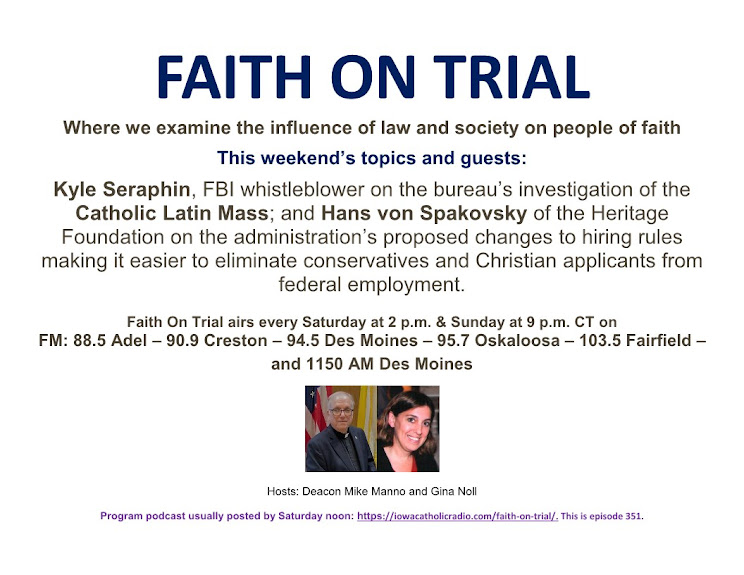By Catholic League president Bill Donohue
Freedom of speech should be honored on the college campuses more than any place in the nation, but, alas, that is not true. Indeed, the campuses are hotbeds of censorship.
Freedom to speak one’s mind about religion, and to establish religious clubs on campus, should also be a slam dunk. But again, owing to the prevailing left-wing hatred of western civilization, and its Judeo-Christian roots, that is definitely not the case.
The Trump administration sought to do something about this condition by prohibiting federal funding of colleges and universities that restricted religious student group activities. Now the Biden administration is seeking to overturn this rule, allowing institutions of higher education to return to their censorial ways.
The Department of Education (DOE), under Secretary Miguel Cardona, announced last week that starting on February 22, the public would have 30 days to comment on the proposal to nix the Trump initiative. The DOE says that “it is not necessary in order to protect the First Amendment right to free speech and free exercise of religion given existing legal protections.” It also says the policy is “unduly burdensome.”
Both of these statements are manifestly false. It was precisely because the religious rights of students were not protected on campus that the previous administration was beckoned to act. Moreover, it is risible for an administration that is regulation-happy to start worrying about rules that are “unduly burdensome.”
When it comes to the rights of LGBT students, the Biden administration says we can’t have enough protections. Why, then, when it comes to the rights of religious students is it deemed they have enough rights?
Before providing data that undercut what the DOE is saying, consider what prominent academics have been saying about this subject.
“On America’s elite campuses, today, it is perfectly acceptable for professors to use their classrooms to attack religion, to mock it, to trivialize it, and to refer to those whom faith truly matters as dupes, and dangerous on top of it.” That’s how Yale law professor Stephen Carter put it over two decades ago. The African American author concluded that if similar things were said about other groups, it would be called “bigotry.”
The situation on campus has only gotten worse over the past two decades. Alan Levinovitz teaches at James Madison University. He notes that many campuses have trigger warnings and safe spaces to alert students about potentially challenging material. He says that “as a professor of religious studies, I know firsthand how debates about trigger warnings and safe spaces can have a chilling effect on classroom discussions.” He specifically names discussion about religious beliefs as among the most likely to be stifled.
Levinovitz observes that according to anonymous in-class surveys, “about one-third of my students believe in the exclusive salvific truth of Christianity. But rarely do these students defend their beliefs in class. In private, they have told me that they believe doing so could be construed as hateful, hostile, intolerant, and disrespectful….”
A few years ago, Princeton professor Robert P. George and Orthodox Rabbi Meir Soloveichik, one of his former students, spoke about this issue at a forum on the subject.
According to George, who is a former chairman of the U.S. Commission on International Religious Freedom, “There is an antipathy, sometimes an open hostility to religion” on campus. Soloveichik, who teaches at Yeshiva University, spoke about bigoted attacks on Israel, noting, “The truest threat to people of faith in the modern university, from my perspective … is the culture of hedonism as part of student life.”
In 2019, the Council for Christian Colleges and Universities’ Presidents Conference, a network of over 180 Christian colleges worldwide, registered their concerns about the religious rights of students. Shirley Mullen, president of Houghton College, a Christian liberal arts college, said, “The standard western narrative of progress has assumed that deeply held religious beliefs, especially when there is diversity in those beliefs, result in intolerance, conflict, violence, oppression.”
There certainly is no shortage of examples of religious students being badgered on campus. Courses, lectures and workshops abound on the prevalence of alleged “Christian privilege,” a term used to bash Christians, especially male heterosexuals. As I pointed out recently, in other words, “the Hispanic Catholics who clean the toilets of filthy-rich atheist students and their pampered professors are the ‘privileged’ ones.”
It is because of this poisonous milieu, where religious students are treated as outcasts, if not the enemy, that their rights on campus merited protections from the previous administration. The Biden administration, heavily staffed by militant secularists, wants to eviscerate those rights. We can’t let that happen.
To read our report on the plight of religious students on campus, click here.





